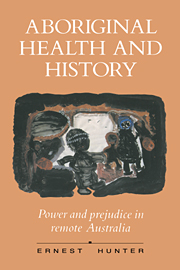8 - Issues of Identity
Published online by Cambridge University Press: 18 October 2009
Summary
INTRODUCTION
When I was young they sent me to school
to read and write and be nobody's fool
they taught me the white ways and bugger the rest
cos everything white was right and the best.
So I grew up in a white man's sense
and I found belief and I gained confidence
no doubts were apparent in my little world
so I sailed on to big things with my wings unfurled.
My world was so rosy until I saw
that nothing that I did could open the door
cos when you reach somewhere no matter how soon
you're nothing more than an acceptable coon.
‘Acceptable Coon’, by Jimmy Chi and Stephen PigramJimmy Chi's musical Bran Nue Dae, based on his youth in Broome and in a Catholic boarding school in Perth, opens with the musings of the adolescent Aboriginal hero and prodigal son, Willy. He is reflecting resignedly on the futility of striving to meet white expectations, and on the contradictions of their values, realising that Aborigines are, regardless of effort, relegated by those defining and imposing the standards, to marginal status — at best he could be an ‘acceptable coon’. Having rejected, or fled, the rigours of an authoritarian Catholic school system, Willy returns home to Broome with his ‘uncle’, Tadpole, a wily drifter who had lived on the fringes of white society. Both are travelling north to renew connections, to become whole.
- Type
- Chapter
- Information
- Aboriginal Health and HistoryPower and Prejudice in Remote Australia, pp. 200 - 253Publisher: Cambridge University PressPrint publication year: 1993



